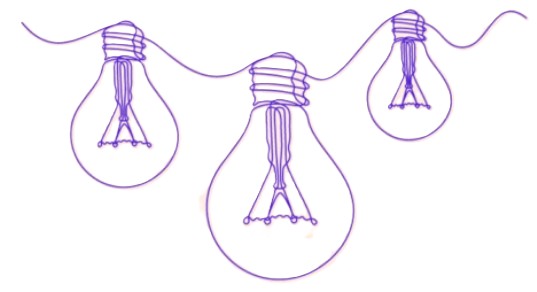
Click on the name of the law below to visit the referenced websites accordingly.
This information is made available for informational purposes only. Acumen Group LLC is not a practicing law firm and we do not give legal advice. If you have questions about the information you are reading, please reach out to the owner of the website or to your Association’s Attorney.
Federal Laws
Fair Debt Collection Practices Act (FDCPA)
Under this Act (Title VIII of the Consumer Credit Protection Act), third-party debt collectors are prohibited from using deceptive or abusive conduct in the collection of consumer debts incurred for personal, family, or household purposes. Such collectors may not, for example, contact debtors at odd hours, subject them to repeated telephone calls, threaten legal action that is not actually contemplated, or reveal to other persons the existence of debts.
Americans with disabilities act (ada)
Here is the text of the Americans with Disabilities Act of 1990 (ADA), including changes made by the ADA Amendments Act of 2008. Congress passed the ADA as a “Public Law,” and it originally was in a different format than presented here. To make the law more widely available, the ADA was later reformatted and published in volume 42 (called “title 42”) of the United States Code. One small part of the ADA is found in title 47 of the United States Code. The text below mirrors the law as it is found in the U.S. Code. Because the numbering system is different in the U.S. Code, the headings provide in brackets the title numbers of the ADA as originally enacted.
the fair housing act
The Fair Housing Act protects people from discrimination when they are renting or buying a home, getting a mortgage, seeking housing assistance, or engaging in other housing-related activities.
freedom to display the american flag act
The Freedom to Display the American Flag Act of 2005 expressly addresses homeowners associations. Under the Act, common interest communities cannot adopt or enforce policies or enter into contracts that prevent or restrict members from displaying the U.S. Flag on residential property.
Over-the-Air Reception Devices Rule
The Over-the-Air Reception Devices Rule (OTARD) bans restrictions that diminish the use, maintenance, and installation of antennas and reception devices. These devices are often used to receive local broadcasts or wireless cables.
United States Bankruptcy Code
The United States Bankruptcy Code is a code that prevents HOAs from taking actions to collect fees subject to the bankruptcy case if a homeowner files for bankruptcy. This includes civil complaints and liens. However, the HOA may resume collections once the court lifts the “automatic stay” or when the case is no longer pending.
If an HOA violates the automatic stay, the bankruptcy court can impose penalties. These may include returning the money or releasing the property lien.
The Servicemembers Civil Relief Act
The Servicemembers Civil Relief Act (SCRA) protects members of the Marine Corps, Coast Guard, Navy, Air Force, and U.S. Army from foreclosures and collections during service. This includes any servicemember on activated reservists, active duty, and members of the National Guard who are active for more than 30 consecutive days.
State Laws
In the State of Texas, property owners’ associations are primarily regulated by the Title 11 of the Texas Property Code. In some situations, other statutes are applicable as well. Please see the different laws below.
Texas Property Code, Chapter 202
This chapter discusses restrictive covenants, their construction, and enforcement. It lists certain restrictions that are prohibited by law and contains a provision related to an association’s duty to file dedicatory instruments with the county.
Texas Property Code, Chapter 209
The Texas Residential Property Owners Protection Act is the state law that covers various issues such as board governance, elections and voting, record-keeping and an owner’s right to access records, protections regarding third-party collections, required notices, foreclosures for assessment liens, and regulations on leases.
Texas Business Organizations Code, Chapter 22
This chapter of Texas law discusses the formation of nonprofit corporations. Because many property owners’ associations incorporate as nonprofits, this chapter will provide guidance on how these associations must be formed and operated.
Texas uniform condominium act, Chapter 82
This chapter governs the creation, alteration, and termination of condominiums, condominium management, and purchase protections.
Texas condominium act, Chapter 81
Provisions that may apply to condominium entities created before 1994.
TEXAS RESALE DISCLOSURE requirements, chapter 5
Texas Property Code, Title 2; Section 5.008 (specifically Question #9) requires sellers to disclose if they are aware of a “Homeowners’ Association or maintenance fees or assessments.” Examples of the notice forms are available through the Texas Real Estate Commission (TREC) and the Texas REALTORS.
In addition, Sect. 5.012 states that the seller must provide the buyer with a “Notice of Obligations Related to Membership in a Homeowners’ Association.” Both notices must be provided before the contract is signed or as part of the contract.
Not all property sales are subject to these mandatory disclosures. Talk to your real estate agent or consult an attorney for more information.
If the property is part of an association, the buyer may request a document called “resale certificate” and any governing documents of the association. The certificate summarizes the association’s financial status, fee structures, and any unpaid debts owed by the property in question, among other information. Preparation of these records can cost up to $375.
TEXAS fair housing act, chapter 301
This law protects people’s right to access all housing opportunities without discrimination based on race, color, religion, sex, familial status (the presence of children under the age of 18), or national origin.
Texas debt collection act, Chapter 392
This chapter discusses restrictive covenants, their construction, and enforcement. It lists certain restrictions that are prohibited by law and contains a provision related to an association’s duty to file dedicatory instruments with the county.
REGULATION OF CERTAIN ROOFING MATERIALS, chapter 202 section 202.011
Property owners’ associations cannot adopt or enforce a provision that prohibits or restricts the installation of shingles that are energy-efficient or can generate solar power. Associations can impose limitations promoting uniformity of home appearance in the community.
Regulation of solar energy devices, Chapter 202 section 202.010
The statute expressly prohibits property owners’ associations from preventing or restricting a solar energy device installation unless public safety is at issue (associations can regulate panel placement). Before installing any solar devices, homeowners should follow the association’s architectural application review process.
Regulation of standby electric generators, Chapter 202 section 202.019
Property owners’ associations may not adopt or enforce a provision that prohibits or restricts an owner from owning, operating, installing, or maintaining a permanently installed standby electric generator as long as they meet applicable safety codes.



